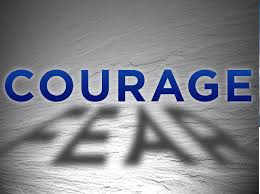
Arquivo para November 27th, 2024
The virtue of fortitude: the moral ethics of courage
Since ancient Greece, courage has been associated with violent heroism and the ability to warily confront fear, but it is not this moral virtue called fortitude that is seen as one of the cardinal virtues.
associated with violent heroism and the ability to warily confront fear, but it is not this moral virtue called fortitude that is seen as one of the cardinal virtues.
We’ve already mentioned that in philosophy, the Englishwoman Philippa Foot dealt with this aspect of moral ethics and for this reason her ethics became known as virtue ethics.
Facing dangers and even trials (and provocations) means being aligned with the other two cardinal virtues: prudence and wisdom, as well as justice, but here’s another observation: human justice is merciless and legalistic, it doesn’t contemplate mercy and forgiveness.
Courage accompanied by prudence is the ability to pass life’s obstacles in order to overcome them so as not to reproduce hatred, violence and injustice, and so it must be produced and led by wisdom, which is not just culture and good reading.
In dark times it is particularly important because it takes courage to go through difficult situations and not lose one’s serenity, the ability to help others who are going through the same or even worse situation due to the hostile environment.
This is how we find people, true icons of this virtue of courage, who saved Jews from persecution (I’m reminded of the movie Schindler’s List), many characters who were true fortresses in the face of persecution and difficulties in the midst of war, the members of the Red Cross teams and and also the Red Crescent, the Islamic version of relief in the midst of catastrophes and wars.
They bring hope in the midst of chaos, so they also contemplate this theological virtue, and in many cases restore faith and charity, completing the theological trio.
In this way, they go against what everyone is trying to reject: the physical and moral pain suffered by those who find themselves in the midst of wars and catastrophes. We’ve already posted here about the importance of this hermeneutic of pain, for example, when we posted about “The Palliative Society: Pain Today” (Byung-Chul Han).
In this book, Byung-Chul quotes Ernst Jünger’s phrase: “Say what your relationship to pain is, and I’ll tell you who you are!” and that we can be seen as social and say what our relationship to society as a whole is, and that this is where the virtue of fortitude (courage) lies.

